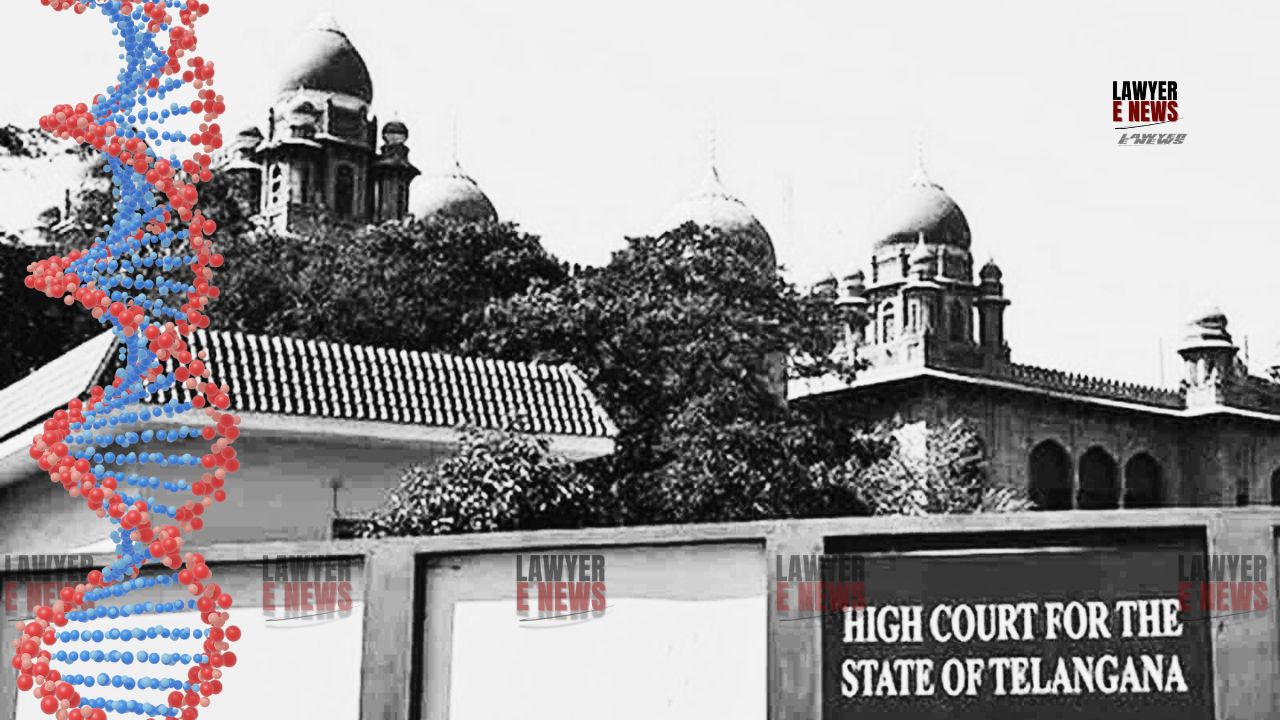-
by Admin
15 February 2026 5:01 PM



The judgment in Sk Mypasha Karimnagar vs. State of Telangana confirms the life imprisonment sentence for the appellant under Section 376(2)(f)(i)(n) IPC and Section 4 of the POCSO Act. The Telangana High Court has upheld the conviction and life imprisonment of Sk Mypasha in a case involving repeated sexual assault on a minor. The judgment, delivered by a bench comprising Justices P. Sam Koshy and Sambasivarao Naidu, highlights the importance of the victim's testimony and corroborating medical evidence in securing convictions in sexual assault cases involving minors.
The case concerns Sk Mypasha, the stepfather of the victim, who was accused of repeatedly raping his 12-year-old stepdaughter, resulting in her pregnancy. The prosecution's case was built on the victim's detailed testimony, medical reports confirming her pregnancy, and the corroborative statements of her mother. The appellant was convicted by the trial court on June 11, 2014, under Section 376(2)(f)(i)(n) IPC and Section 4 of the POCSO Act and sentenced to life imprisonment, along with additional punishment under Section 506 IPC.
The court underscored the credibility of the victim’s account, which was consistent and detailed. Justice P. Sam Koshy noted, "PW.2's testimony provides a comprehensive and coherent narrative of the sexual abuse she endured, which is crucial in establishing the guilt of the appellant." The victim's account was supported by medical evidence, which confirmed her pregnancy and aligned with her timeline of events.
The court highlighted the significance of medical evidence in corroborating the victim’s allegations. The medical examination confirmed the victim's pregnancy, serving as crucial corroborative evidence. "The medical report adds a layer of objective evidence that reinforces the credibility of her testimony," the court remarked.
The court also considered the testimony of the victim’s mother, which corroborated the victim’s account and provided additional validation of the narrative presented. The consistent statements of both the victim and her mother played a pivotal role in affirming the prosecution’s case.
The judgment discussed the principles of evaluating evidence in cases of sexual violence against minors. The court reiterated that the victim's testimony alone, if found reliable and trustworthy, is sufficient for conviction. "The testimony of PW.2, corroborated by medical evidence, leaves no room for doubt about the occurrence of the crime," the court stated.
Justice P. Sam Koshy remarked, "The consistent and detailed testimony of the victim, supported by medical evidence, forms a robust basis for upholding the conviction. The absence of DNA testing, explained reasonably by the prosecution, does not detract from the credibility of the evidence presented."
The Telangana High Court's decision reinforces the judiciary's commitment to upholding justice in cases of sexual violence against minors. By affirming the lower court’s findings, the judgment emphasizes the reliability of victim testimonies and medical evidence in such cases. This landmark decision is expected to bolster the legal framework for addressing sexual crimes, ensuring that the voices of victims are heard and validated.
Date of Decision: July 16, 2024
Sk Mypasha Karimnagar vs. State of Telangana
